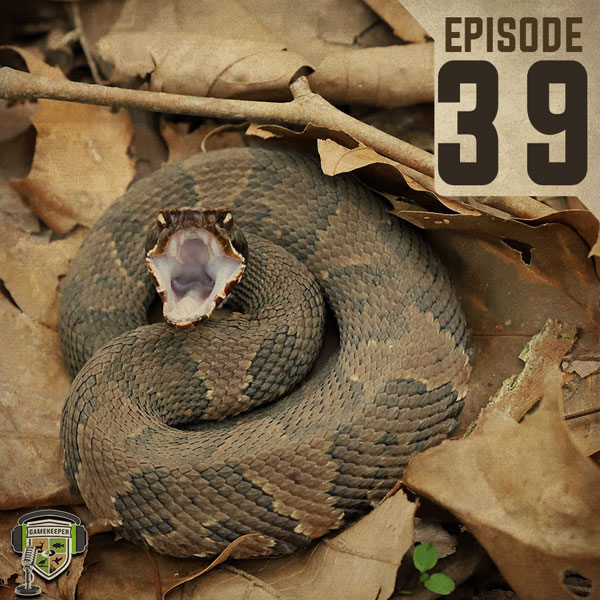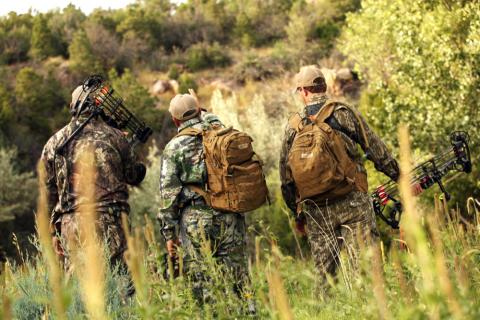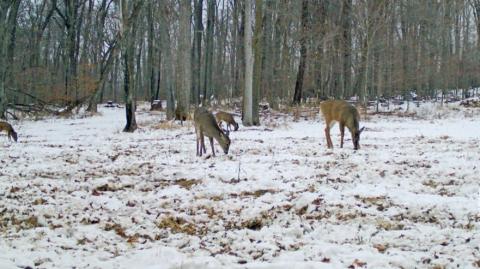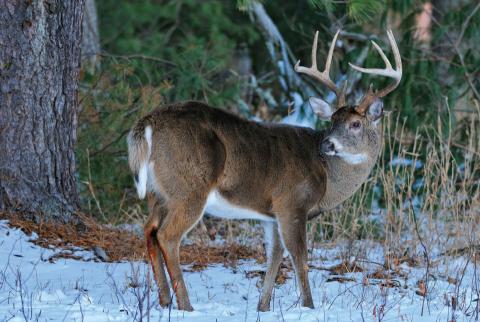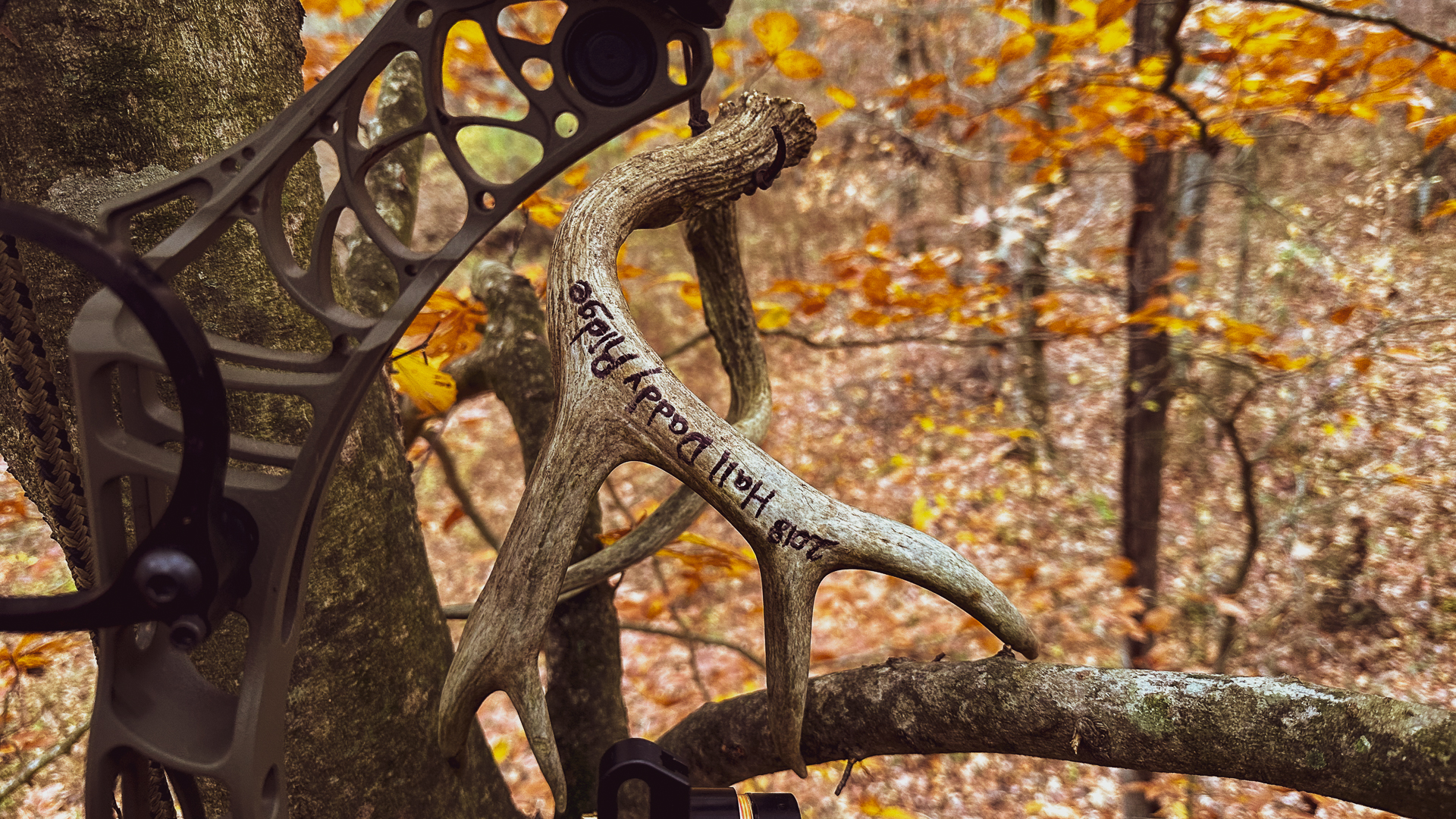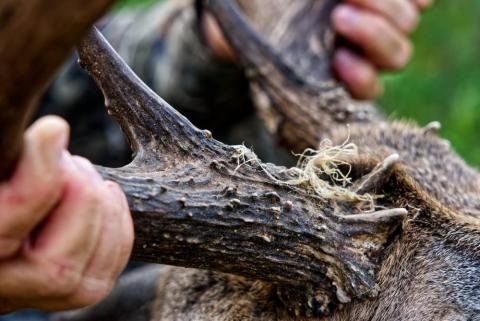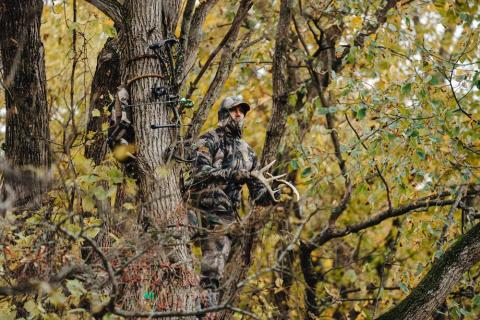Venomous snakes can be a danger in many parts of the United States. From cottonmouths to copperheads, there are approximately 20 different species that pose a threat to humans. As venomous snakes live in every state except Alaska, you’ll need to take some precautions when camping to deter these potentially deadly reptiles.
When and Where It’s Warm
Snakes, like all reptiles, are ectothermic or cold-blooded. This means that the snake’s body temperature depends on the environment. If the snake needs to raise its body temperature, it seeks sunshine or warm surfaces. If it needs to lower its body temperature, it seeks shade or cold surfaces.
As a result, snakes generally prefer warmer seasons and climates, emerging from brumation during the spring and summer months to search for food. Brumation describes a period of reduced metabolic activity, where snakes become lethargic and dormant to preserve energy during the colder months.

Don’t Tread on Me
While it’s natural to be apprehensive regarding serpents, it’s important not to panic when you encounter a snake at your campsite or in the wild. Developing knowledge of indigenous snakes enables you to differentiate between those that are harmless and those that pose a threat. Remaining calm under these circumstances is crucial to assess the situation rationally.
It’s also vital that you pay attention to where you walk. Check leaves, branches, logs and rocks that you intend to set foot on or are near. You may save yourself an unpleasant surprise.
Setting Up Camp
When establishing your campsite, select a location that’s free from dense brush, rock piles, fallen leaves, tree branches and tall grass. Relatively flat, even terrain and wide-open spaces are ideal. You want to remove as many potential hiding places as possible. If you can’t choose a campsite that’s already in this condition, try to landscape it accordingly and use a camping pad. That also means keeping the campsite clean and instructing every member of your party to do the same. Your campsite location should also not be too close to a water source.
Don’t Leave Food Lying Around
An essential part of keeping your campsite clean is ensuring that you don’t leave food lying around that could attract birds, rodents and other prey animals. Snakes should not have an incentive to search your campsite.
What you don’t consume, dispose of properly. Don’t leave food or table scraps in garbage bags outside. Instead, store food and waste in airtight containers, ideally elevated. This applies to your mess kit too. Always clean your eating utensils following a meal.
Check Your Tent
You should periodically examine your tent for rips or punctures that would allow snakes to enter. Handling, assembly, errant tree branches and other factors can cause the fabric to tear. Carry a tent repair kit in your backpack for such occasions. When you leave your tent unattended, it should be zipped up so there are no gaps or entry points. You should also examine your sleeping bag or bedroll before sleeping. Always check your boots too!
A Campfire Can Keep Them at Bay
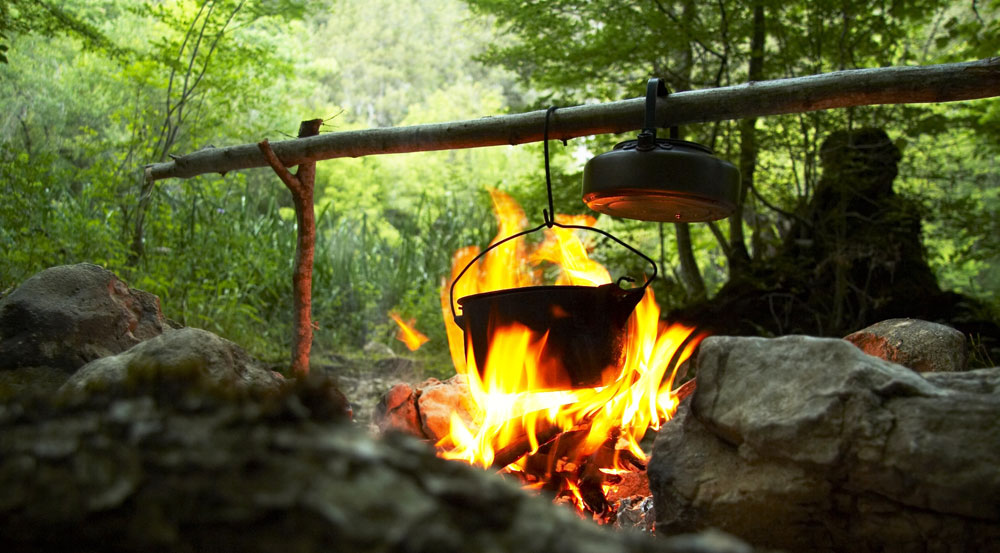
As snakes and other reptiles depend on the environment to regulate their body temperature, extreme heat and cold can drive them away. That includes fire. As you’ll probably be practicing campfire cooking anyway, the potential deterrent effect is a secondary benefit. Always ensure you have a Ferro rod or waterproof matches and tinder to make a fire.
What to Do if Bitten
If you encounter a snake, regardless of whether you suspect it to be venomous, you should not provoke it. Avoidance is the best policy. If a venomous snake bites you or someone you know, call emergency services immediately.
Apply basic first aid, and keep the location of the bite below the heart — this will slow the venom’s spread. You should strive to keep the patient calm and still until emergency services arrive, which prevents increasing the heart rate.
Always bring a first-aid kit on any camping, hunting or fishing trip. Aside from treating snakebite, it’s good to be prepared.
What Not to Do if Bitten
Several historical methods of treating venomous snakebites have an almost folkloric quality to them. They’re also unscientific and can have potentially lethal consequences. Don’t attempt to “suck out the poison” — the venom enters the bloodstream too rapidly for this to make a difference. Don’t cut the wound site or apply a tourniquet either. These methods are both ineffective and potentially harmful, increasing the risk of infection and restricting blood flow.
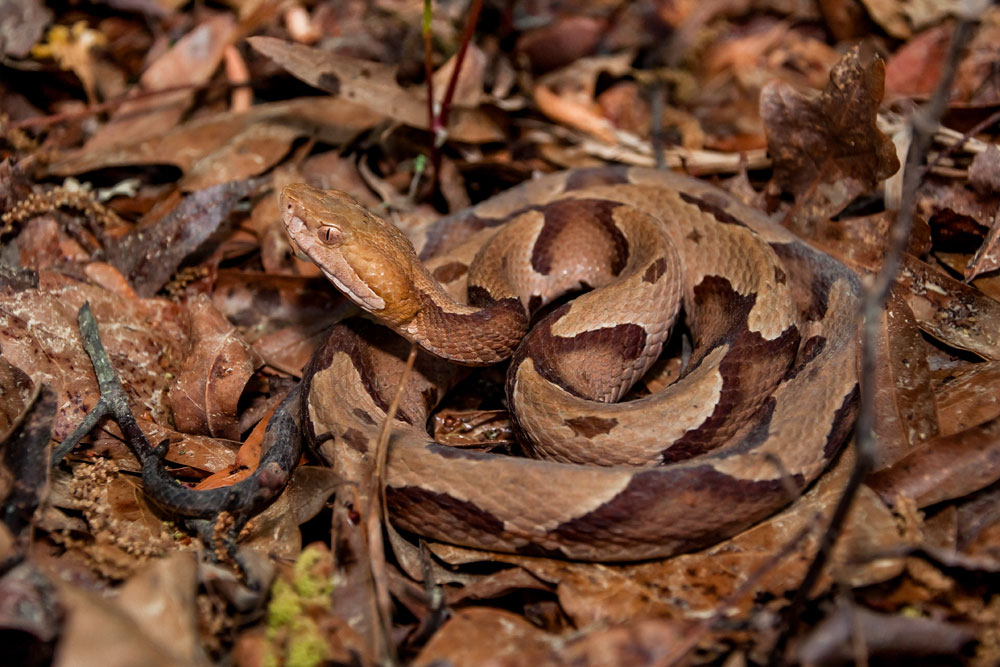
Snake Repellants
Contrary to the claims of some product manufacturers, many commercial snake repellants are not effective. Avoid using naphthalene — the active ingredient in mothballs — or sulfur. The former is toxic to humans and mammals, and both fail to deter snakes. Always be skeptical about home remedies and conduct your own research. A portable solar-powered ultrasonic pulse emitter is one of the simplest ways to repel snakes around your campsite because snakes are sensitive to high-frequency sound waves.
Use of Weapons
If you encounter a snake, leave it alone. However, if that isn’t an option, you may decide to repel the snake using a weapon. A flat shovel that you use for digging catholes is ideal. If you carry a firearm, you should be aware that there is an elevated risk of ricochet from a ground impact. One way of minimizing this risk is to use snake-shot cartridges, which contain a charge of birdshot in a plastic projectile. If you decide to load your handgun with snake-shot cartridges, always test the ammunition on a firing range beforehand.
Dress for the Occasion
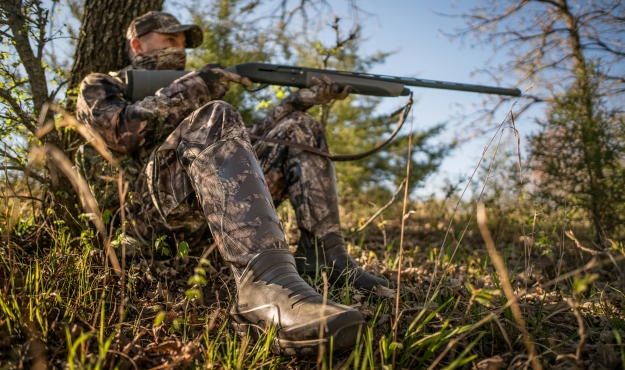
One of the most important precautions that you can take is to dress appropriately. Open-toed shoes are inappropriate for camping in areas where snakes are known to hunt and travel. Wearing a pair of dedicated hiking boots can provide increased snake bite protection, reducing your risk of injury.
Protect Yourself While Camping
Every year, about 7,000–8,000 Americans are bitten by venomous snakes. Thanks to modern medical care and anti-venom, only about five of those bitten die. You can minimize your risk of suffering a snakebite in the first place by taking the necessary precautions, paying attention to your environment and ensuring a clean campsite at all times.
Learn more about snake bites and what to do on this episode of the GameKeeper podcast.

